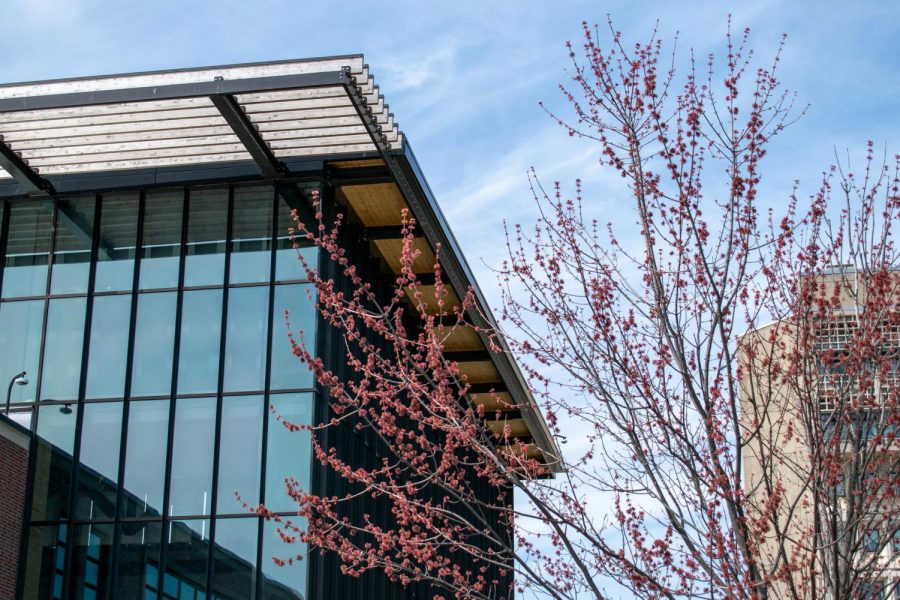On Sept. 8, Lily walked home from the campus pond where she just broke up with her high school boyfriend. They were planning to do long distance, but she got with a sophomore at Kappa Sigma. She knows he’ll take her back over winter break though.
Lily’s situation sounds familiar enough, except she doesn’t exist. Lily and her story were created by @fakepeopleofumass, a campus-specific TikTok account at the University of Massachusetts, which gained popularity this semester. Fake people accounts are very similar across universities: an anonymous student is filmed going about their day, and they’re posted with a made-up name, age and situation. Though the stories are fictional, they often hinge on assumptions based on the person’s appearance.
The fake people trend is fairly harmless, but it proves a growing comfortability with filming and posting strangers to social media without their consent. Doing so should not be acceptable.
The real Lily, who identified herself in the comment section of the video, did not ask for her walk through Southwest to be viewed by 1.7 million people. Sure, she could reach out to @fakepeopleofumass and ask for the video to be taken down, but her privacy should have never been violated in the first place.
Other accounts that post videos of students at the University of Massachusetts are not as innocuous. @Zoomass and @zoomasschicks on Instagram have built their followings on the drunken embarrassments of students. People are seen passed out on the ground, making dangerous or illegal decisions and falling from roofs, sinks and stairs. College students today are afforded no room to make mistakes, and it’s a burden they put on each other. Nobody should have to worry that their low moments will be filmed and shared with thousands of people.
Like @fakepeopleofumass, the videos are anonymous, but never for long. Friends and classmates often flock to the comments section to tag the featured student, revealing their identity. These posts have consequences. Students should consider how their friends’ careers and reputations will be impacted before tagging them, but they shouldn’t have to. @ZooMass must take responsibility and confirm they have consent of the filmed student before posting them.
ZooMass did not respond to an inquiry about whether posts are removed at the request of featured students or if permission is granted from the featured student in addition to the video’s provider.
It’s easy to put the blame on the students in these videos. If they didn’t want to be posted, they shouldn’t have drunk so much, they shouldn’t have acted so erratically. However, sympathy is in order for those whose compromising night is now up for scrutiny by a wide audience. Instead of blaming the victim, blame the culture that relies on strangers for content; the one that finds entertainment in people at their lowest.
Though I disagree with the content posted by @fakepeopleofumass, @zoomass and others like them, they are not breaking the law. It is legal to film strangers without their consent in public places, like the UMass campus. However, legality does not make something morally right. The constant threat of being filmed while walking to class or eating a banana in the dining hall fuels the never-ending self-awareness that comes with social media.
On the other hand, there are also cases where filming strangers is acceptable and should be encouraged. Cell phone videos from the past decade documenting police brutality against Black people were key to launching the Black Lives Matter movement and protests for racial justice. Without these videos, it is unlikely the response would have been the same. Massachusetts law protects the people’s right to film police officers doing their jobs in a public space, which is crucial in holding those in positions of power accountable. These high-stakes circumstances are not for entertainment value and not comparable to the type of videos posted by UMass-focused accounts.
The next time you decide to film someone on campus, think twice about who’s benefiting from it and who will face consequences for your actions.
Catherine Hurley can be reached at [email protected]. Follow her on Twitter @cath_hurley.





















Kevin • Sep 29, 2021 at 12:01 pm
I thought tiktok was for tweens.